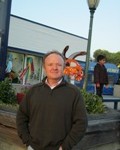It is over a decade since Andy Grove of Intel fame predicted that eLearning will be the next big thing but instead of exploding on the scene, the growth of eLearning has been slow and steady. Lessons have been learned as many early implementations failed to meet expectations and helped identify the barriers to success , and where eLearning was effective and where it was not.
The next meeting of the Society will present the views of two practitioners in the field of eLearning, Iain Doherty and David “Dod” O’Dwyer, to update you on what has been achieved, and how the field of eLearning could be developed.
The event is free for HKKMS members and $200 for non-members..
Date and time : Friday 16th November 2012 (6.30pm – 8.00 pm)
Venue: Conference Room 2, 22/F, United Centre 95 Queensway (Admiralty MTR Station)
Registration for the event has finished. Keep an eye out for more events and commentary.
Overview
This session will be informal and interactive and will revolve around presentations of eLearning perspectives from academia and the corporate world and will work well with audience participation, so prepare to be involved and engaged.
Academic Perspective – Iain Doherty
eLearning implementations in higher education have for the most part been poor. This situation explained in terms of the failure of higher education to change teaching and learning practices. In this presentation Iain Doherty will examine this situation in the context of looking at The University of Hong Kong’s eLearning strategy. The University of Hong Kong’s eLearning strategy will be explained along with the role of the eLearning Pedagogical Support Unit in implementing the strategy. Iain will also look at an alternative learning theory – Connectivism – and ask whether Connectivist teaching and learning would facilitate eLearning whilst also better preparing graduates to take their place as knowledge workers in companies.
Corporate Perspective – David O’Dwyer (Dod)
The promise of eLearning in corporate environments was huge, the ability to provide access to required and desired learning when ever and where ever it was needed.
The reality hasn’t been quite so rosy, expectations were very high that eLearning was a new paradigm for training and development in the corporate environment but this promise hasn’t been fully realised. There was a strong expectation of lowering the overall cost of training and this has been relatively successful, however the promised land of self directed learning and the learning organization has not been successfully materialized. Ultimately what is the definition of eLearning and its position within collaboration and communications strategies for companies? In this session Dod will retrace what eLearning means in a corporate environment, what it promised and by reference to specific case studies and experiences, what it looks like and where are the typical gaps. Dod will paint a picture of where the future lies and suggest ways to move forward.
Biographies

